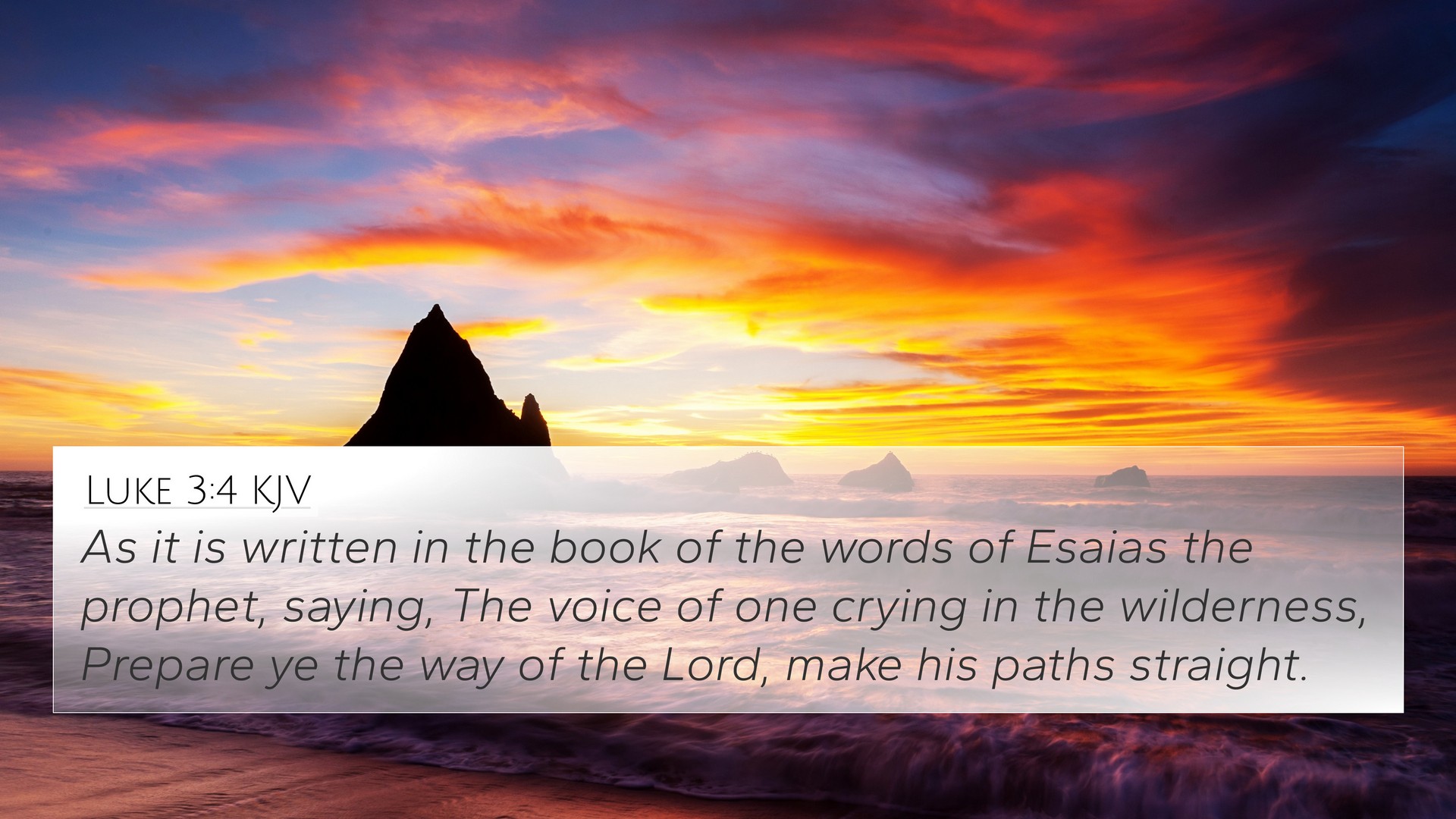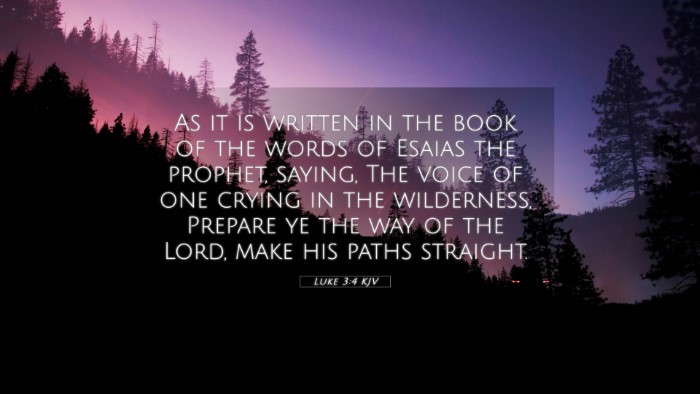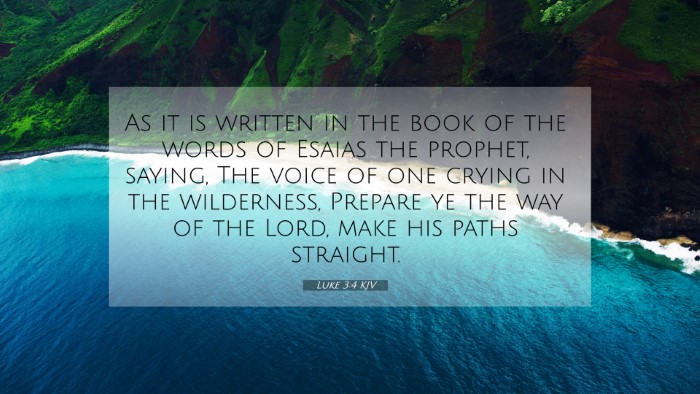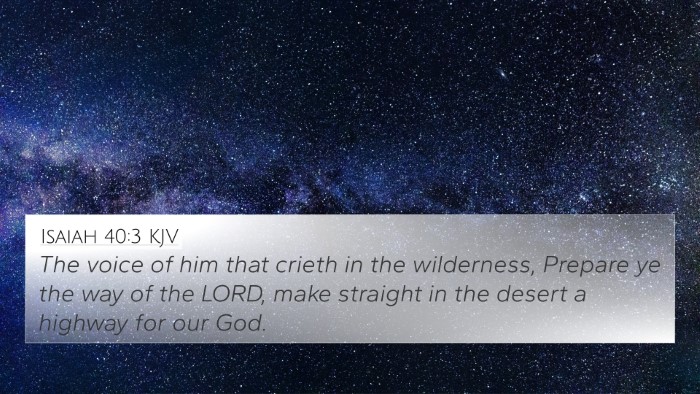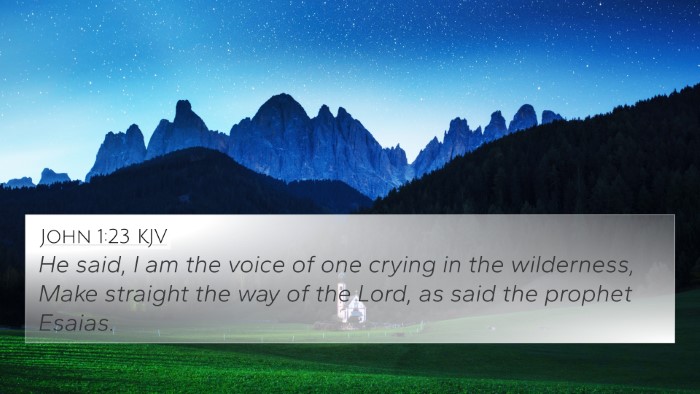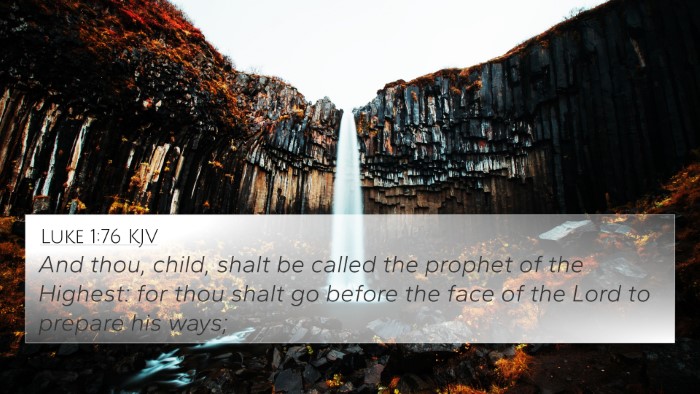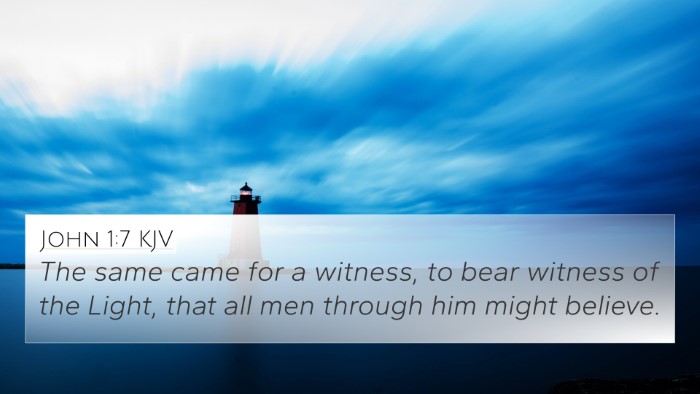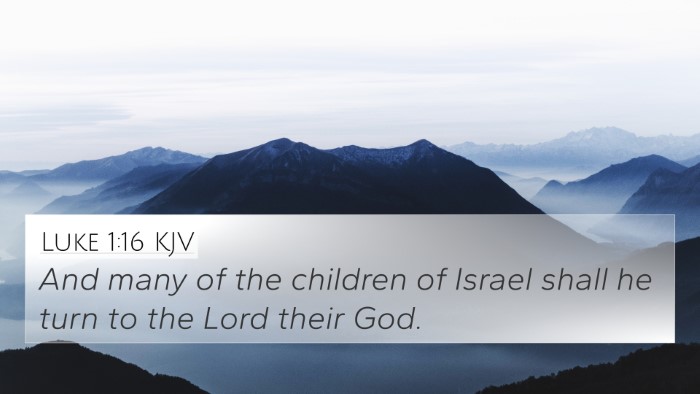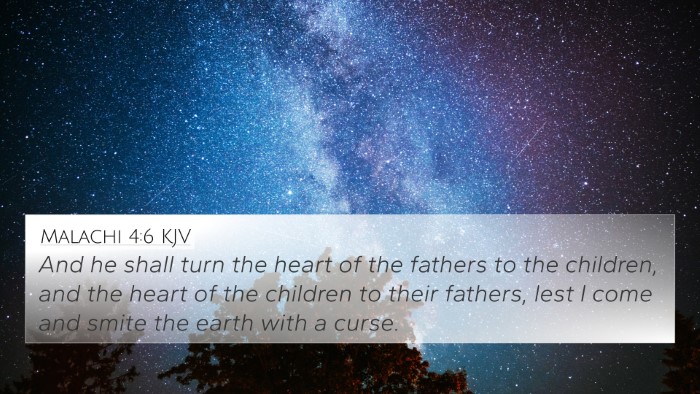Understanding Luke 3:4
Luke 3:4 states, "As it is written in the book of the words of Isaiah the prophet, saying, The voice of one crying in the wilderness, Prepare ye the way of the Lord, make his paths straight." This verse holds significant meaning in the context of the New Testament and connects intricately with various themes and other scriptures throughout the Bible.
Context and Significance
The call to prepare the way of the Lord signifies the advent of Jesus Christ and highlights the prophetic role of John the Baptist. This scripture not only references the prophetic fulfillment but serves as an integral piece that connects the Old Testament prophecy in Isaiah with its New Testament realization.
Commentary Insights
- Matthew Henry: Emphasizes the importance of John the Baptist's mission to prepare the hearts of the people for the coming Messiah. He points out that this preparation requires spiritual readiness and the acknowledgment of sin.
- Albert Barnes: Notes the literal fulfillment of Isaiah's prophecy, illustrating the significance of the wilderness as a place of reflection and preparation for God’s work. Barnes relates this to the broader theme of repentance and return to God.
- Adam Clarke: Discusses the implications of "making paths straight," which symbolizes removing obstacles to faith. Clarke interprets the voice crying in the wilderness as a call to humility and the rejection of worldly distractions.
Related Cross-References
- Isaiah 40:3: "The voice of him that crieth in the wilderness, Prepare ye the way of the Lord..." - This is the original prophecy that Luke 3:4 quotes.
- Malachi 3:1: "Behold, I will send my messenger, and he shall prepare the way before me..." - Connects to the theme of preparing the way for the Lord.
- Matthew 3:1-3: The accounts of John the Baptist where he fulfills the prophecy, emphasizing the need for repentance.
- Mark 1:2-3: Echoes Luke 3:4, asserting the fulfillment of Isaiah's prophecy concerning John.
- John 1:23: John the Baptist identifies himself as "the voice of one crying in the wilderness," affirming his role and purpose.
- Acts 13:24: References John's message and ministry, further demonstrating the continuity of God's plan through the ages.
- Romans 3:23: "For all have sinned and come short of the glory of God." This reflects the need for the preparation that John preached.
Thematic Connections
This verse stands at the confluence of several significant biblical themes:
- Preparation for Salvation: The act of preparing the way signifies a broader theme of salvation that permeates through both testaments.
- Repentance: John's ministry focuses heavily on repentance, inviting people to turn back to God before Christ's arrival.
- Prophecy Fulfillment: The connection to Isaiah showcases how New Testament events fulfill Old Testament prophecies.
- The Wilderness Experience: Symbolic of a place of testing and purity, emphasizing a return to spiritual basics.
- Divine Intervention: God's preparation for His people is consistent with His covenantal relationship with Israel.
Using Cross-Referencing Tools
Engaging with cross-references is crucial for deeper understanding. Tools such as a Bible concordance or cross-reference Bible study methods help believers uncover the intricate tapestry of scripture relationships, fostering a richer faith journey.
In conducting a comprehensive Bible cross-reference study, one can explore how themes of preparation, repentance, and prophecy interlace throughout various biblical texts.
Conclusion
Luke 3:4 invites us into a profound study of prophetic fulfillment and the urgent call to spiritual readiness. By understanding this verse within the broader narrative of scripture, we can draw deeper insights into God's plan and the significance of John the Baptist's mission. Engaging with cross-references and related themes enriches our biblical understanding, ultimately guiding us toward a more robust faith.
